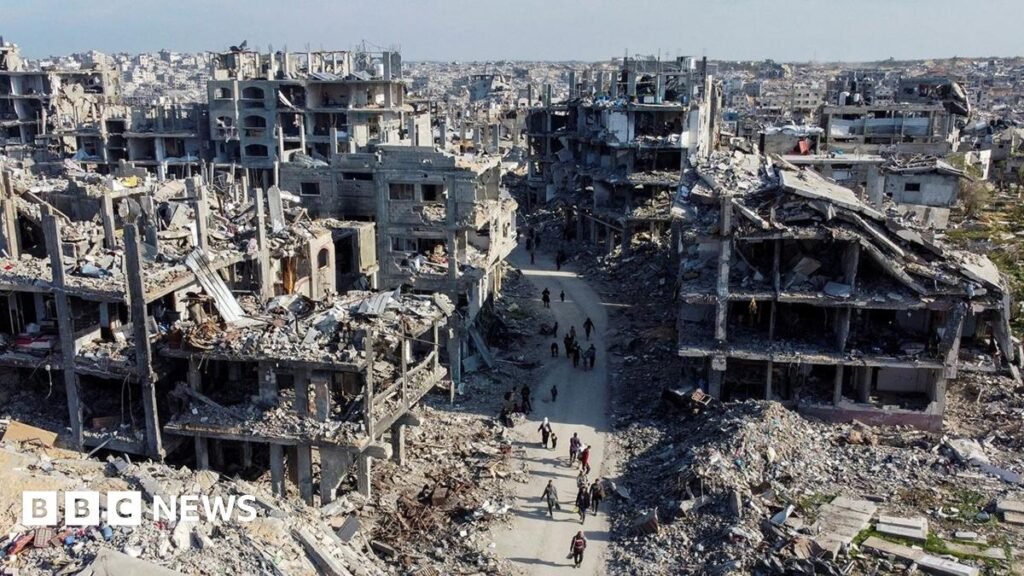UN humanitarian chief Tom Fletcher warned on Sunday night that the humanitarian needs of Palestinians in Gaza were “staggering”.
UN officials have previously blamed the humanitarian crisis on Israeli military aid restrictions, hostilities and law and order violations.
Israel insists there is no limit on the amount of aid that can be delivered to and through Gaza, and blames UN agencies for not distributing the supplies. He also accuses Hamas of stealing aid, which the group denies.
The Israeli military launched a campaign to destroy Hamas in response to an unprecedented cross-border attack on October 7, 2023, in which approximately 1,200 people were killed and 251 were taken hostage. Israel says 91 hostages remain in captivity.
More than 47,000 people have been killed and 111,000 wounded in Gaza since then, according to the Hamas-run territory’s health ministry.
Most of Gaza’s 2.3 million people have also been repeatedly displaced, an estimated 60% of buildings are damaged or destroyed, health, water, sanitation and hygiene systems have collapsed, and there are severe shortages of food, fuel, medicine and shelter. .
In October, the UN-backed Integrated Food Insecurity Phase Classification (IPC) estimated that 1.84 million people in Gaza were experiencing high levels of acute food insecurity, and 133,000 people were facing catastrophic levels that could lead to hunger and death.
The following month, the IPC committee warned that there was a strong possibility that famine was “imminent” in parts of northern Gaza.
Before the ceasefire, the UN said the besieged northern towns of Jabalia, Beit Lahiya and Beit Hanoun had been largely cut off from food aid since the Israeli military launched a ground offensive in October with the stated aim of preventing a resurgence of Hamas.
A Palestinian woman who returned to her destroyed home in northern Gaza on Monday after a ceasefire took effect expressed her shock at what she found after Israeli soldiers left.
“Because of the intensity of the aggression, everything looked as if it had been hit by an earthquake,” Manal Abu al-Dragham told BBC Arabic in Gaza today.
“I will pitch my tent in the north, no matter what it costs… I don’t want to be driven from my land again.”

